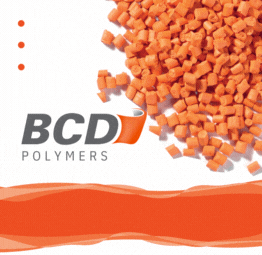These are only the first effects caused by the COVID-19 pandemic. We may expect them to peak in the coming months and be followed by long-lasting aftereffects, since the worst of the pandemic is not yet behind us - medically speaking - especially in the Americas. And it is not surprising that Italian plastics and rubber processing machinery exports have collapsed in this part of the world (-27%), nearly matching losses in Asia (-28%).
The current scenario sees the global economy in downturn, with investments at a standstill, also for plastics and rubber industries. The situation is particularly dire for automotive and building applications, where demand has fallen to extremely low levels. On the other hand, healthcare and cleaning/personal-hygiene product containers are doing well (packaging sector is generally holding steady).
Looking more closely at the trends in the main sales markets in the above geographical areas, in the Americas we find:
- -24% for the United States
- -16% for Mexico
- -37% for Brazil
and in Asia:
- -27% for China
- -6% for India
- -75% for Indonesia.
Concerning Europe, the decline is limited to -4%, with exports showing the following trends in the main outlet markets:
- -3% for Germany
- -40% for Spain
- -21% for France
- +40% for Poland
- +8% for the UK
- an eye-catching +218% for Russia, where strong oscillations, both up and down, are nothing new.
Sales in Africa remained broadly constant, although the two main outlet markets recorded the following downturns:
- -20% for Morocco, major export destination in the Mediterranean region
- -28% for South Africa, a prominent sub-Saharan market.
After the fallback in 2019, with 6% drops in production and exports (not surprising after eight years of growth), 2020 is not going to be a rebound year for the Italian plastics and rubber processing machinery industry, one of the country’s mainstays in mechanical engineering. It is difficult to make forecasts, but most certainly the return to pre-crisis levels will not happen in 2021, a full recovery only likely in 2022.
The drop in orders recorded in the past weeks had immediate consequences for auxiliaries manufacturers whilst providers of more complex and costly plants, with longer delivery times, will feel the main impact further down the line, even in 2021.
The uncertainty of the duration and intensity of the pandemic in the various geographical areas (also considering the possibility of new waves in the coming months) is reflected in the highly uncertain outlooks of foreign buyers of Italian plastics and rubber processing machinery - an industry that exports roughly 70% of production, and even 90% for certain types of plants. The contraction in orders is compounded by personal travel restrictions, resulting in slower or deferred installations and repairs and hence delays in payments.
The domestic market, already weak structurally, is also suffering. It does not currently appear to benefit to any great extent from the emergency measures implemented by the Government to counter the crisis.


